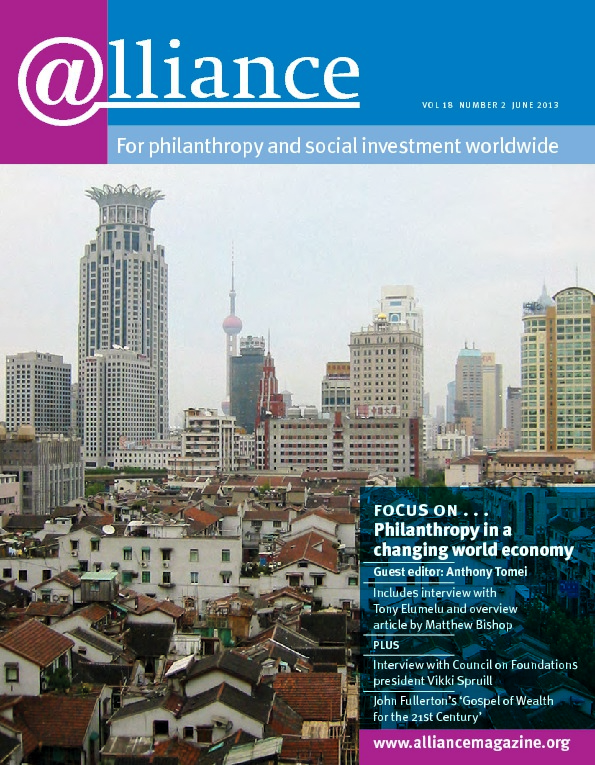Buzz Schmidt and Clara Miller’s article about the F B Heron Foundation’s approach to mission investing requires support, both for what it says and also to push it further. They explain their frustration with the assumption about ‘forgone returns’ resulting from mission investing (‘It’s the wrong question!’, March 2013). They add that the foundation has merged its investment and grantmaking departments so now ‘every Heron dollar is a mission dollar’.
However, mission investing has serious problems which, while not insurmountable, remain significant barriers. My interest is as the convenor and chairman of the working party that produced the influential report The Governance and Management of Endowed Charitable Foundations, which took a more balanced view of these issues. It suggested that the key question for trustees is how to use their entire balance sheet to advance the charitable purpose. This includes not just investments but also spending, reputation, grantmaking, convening power and many other forms of non-financial capital. Usually these are difficult to separate, and different foundations have them in different proportions. For example, inexpert and indecisive governance or focusing on a misjudged issue will exert a far greater cost on the beneficiaries than losing money on any single grant or investment.
Nor are foundations as much in control of their own destiny as they imagine. Legal structures relating to fiduciary duty weigh heavily on trustees, so it is often not possible to avoid the separation between investment and expenditure because different laws apply. While it is difficult to prove that a trustee has been feckless in making a grant, an injudicious investment is easily identifiable – but only the latter can invoke frightening consequences (which may be why the F B Heron trustees struggle to shed the comfort of modern portfolio theory when investing capital). Trustees’ duty is to do what is best for their beneficiaries, and if they do that with reasonable care they should be unassailable. Until they are as frightened of making an injudicious grant as a bad investment they will never fully understand this barrier collectively.
Trustees of private foundations sit in a unique position. It is only they who, in law, are allowed to judge what is in the best interests of their beneficiaries, be it a grant, an investment or a campaign. No one else sits in their seat, nor has the authority to make those decisions. What matters is that they remember that it’s not their money, it’s for someone else – what’s best for them? That is the right question.
James Brooke Turner
Finance director, Nuffield Foundation





Comments (0)